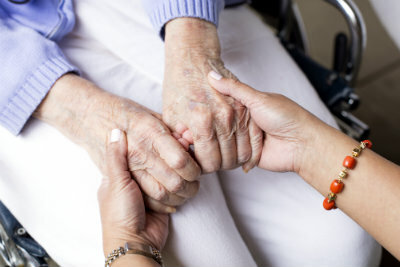Palliative Medicine: Providing Comfort Care


Palliative Medicine: Providing Comfort Care

Palliative care is specialized medical care for people with serious or life-limiting illness. It is both a philosophy of care and a process for delivering care, and focuses on providing relief from the symptoms and stress of illness and improved quality of life for the patient and their family. The primary objective is comfort for the individual or patient while they receive treatment consistent with their personal goals of care. Goals for care is the structure to which an individual’s palliative care plan is devised and thus very important.
What exactly is palliative care, or palliative medicine? How did it come to be? Who can benefit from it?
“Palliative” means to relieve or lessen without curing. Palliative medicine is often thought of as only a part of hospice care provided to someone who has been diagnosed with a fatal disease or illness. While palliative medicine is a crucial component and indeed grew out of hospice care, palliative medicine is a much broader specialty and can treat patients in various trajectories of their illness including alongside curative treatment. In 2006, palliative medicine became a board certified sub-specialty of internal medicine with specialized fellowships for physicians who are interested in the field. Today, palliative care may be provided in a hospital, cancer center, nursing home, outpatient clinic, hospices, or in the patient’s home.
Focusing on the symptoms of both the disease and the treatment, palliative care helps with a wide range of issues. These may include pain, depression, anxiety, fatigue, shortness of breath, constipation, nausea, loss of appetite, and difficulty sleeping. It also helps an individual to gain the strength to carry on with daily life and can help improve the ability to tolerate medical treatments. Palliative care also gives an individual more control over their care by improving their understanding of treatment options.
Palliative care is provided by a multi-disciplinary team made up of physicians, nurses, social workers, and other healthcare professionals who work together with an individual’s primary care physician and specialists. Treatment plans can include medication, massage therapy or relaxation techniques. Since palliative care treats the entire person, team members address social, psychological, emotional or spiritual needs the individual may have.
Anyone who is experiencing uncontrolled symptoms related to surgery or illness may benefit from palliative care. These illnesses include multiple sclerosis, cancer, congestive heart failure, kidney illness, stroke, ALS (Lou Gehrig’s disease), emphysema or COPD, and Alzheimer’s disease and dementia. If there is a sudden change in health due to heart attack, stroke, hip or spinal fracture, or a subtle onset, such as weight loss, pain, recurring infections, fatigue, avoiding food or medications, a palliative medicine consultation should be considered.
The Jewish Home Center for Palliative Medicine strives to provide comfort care to benefit the individual and support for their family. The team is led by Medical Director David Wallenstein, MD, who is board certified in Hospice and Palliative Medicine, and is the lead member of the Palliative Medicine Service at UCLA Medical Center. Dr. Wallenstein is also an Associate Professor at the UCLA David Geffen School of Medicine. Anne Moore, MSN, FNP-c, serves as the Center’s palliative service program manager. She is a board certified Family Nurse Practitioner, ELNEC trained and has over 30 years of experience in geriatrics and palliative medicine.
Palliative medicine services are covered under Medicare Part B, Medi-Cal, and most private insurance companies.
For more information about palliative medicine and the Jewish Home Center for Palliative Medicine, please call (818) 578-7427 or visit us online at www.skirballhospice.org/services/palliative-care.